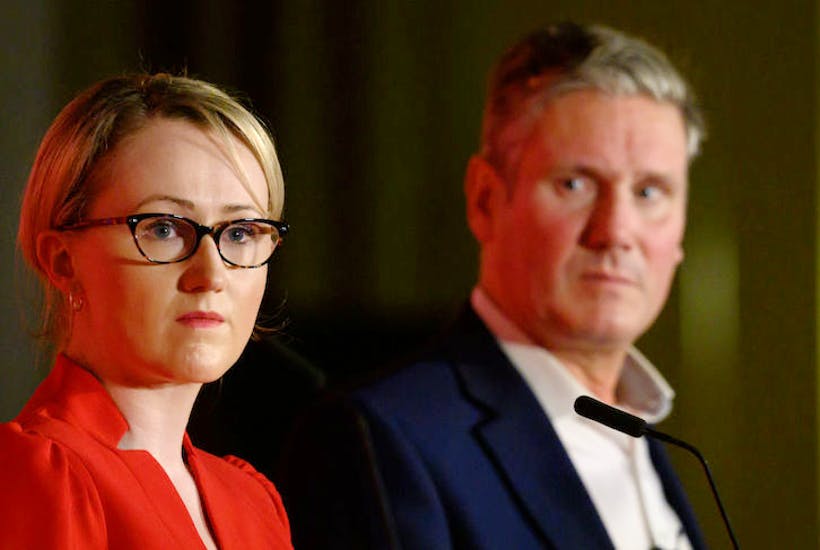This week every contender for the Labour leadership and deputy leadership signed up to a series of pledges issued by the pressure group We Own It, an organisation established in 2013 to campaign against privatisation and in favour of what it calls ‘21st century public ownership’.
The pledges repeat many of the promises made in Labour’s 2019 manifesto. They include nationalising various public utilities, introducing a publicly-owned broadband infrastructure provider, ending NHS ‘privatisation’, returning all schools to local government control, allowing bus services to again be run by councils, opposing profit-making in the justice system and ending the outsourcing of municipal services. Some of these pledges are less clear than others. For example, no part of the NHS has actually been ‘privatised’ in the sense of patients paying for services, so it’s not clear what ending ‘privatisation’ actually means.
Even so, most of the pledges the candidates signed up to are clear, leading some to conclude that whoever leads Labour after 4 April will be committed to the very Corbynite policies rejected by the electorate at the last election. On that basis the party is set to remain in opposition for some time.
That would, however, be too simple an inference. Most surveys suggest there were three main reasons why Labour lost: the most important was Jeremy Corbyn’s leadership, the second was Labour’s Brexit policy and the third was the party’s policies. But many of Labour’s 2019 economic pledges – at least in terms of nationalising the railways, water and energy companies – were actually popular with the public. The problem for Labour was that too few Britons believed the measures were realistic and, more profoundly, had little trust in Corbyn’s overall competence to manage the economy.
There is then scope for believing that a new leader, one not cursed by Corbyn’s toxic persona but infused with an aura of competence, might sell these policies to the public more successfully. This is made more probable because the public’s desire for a bigger government did not begin with Corbyn’s leadership. After the 2008 financial crash, with evidence mounting of shareholder greed in the face of poorly delivered services, the idea that markets were a panacea looked shop-worn. During Ed Miliband’s leadership a majority of the public wanted the railways taken back into government hands, but he dared go no further than promising to freeze ticket prices, and most of his MPs remained in the grip of a pathological fear of being seen as ‘anti-business’.
Frustrated by this caution and by two successive election defeats, Labour members in 2015 craved a leader who would go where Miliband feared to tread. They elected Corbyn to give voice to what they considered to be the party’s true vision, which had been distorted by the New Labour years. There was even a campaign led by prominent Corbyn supporters to restore Labour’s old Clause IV, which had committed the party to the ‘common ownership of the means of production, distribution and exchange’ before Blair (with members’ support) abolished it in 1995.
When the 2017 election saw Labour come within a whisker of power on a manifesto which promised to renationalise water, electricity and the Royal Mail, an increasing number thought being ‘anti-business’ was no longer electoral suicide. The party’s performance encouraged Shadow Chancellor John McDonnell and his advisors to stuff the 2019 manifesto full of promises to extend the role of the state and draft the most radical manifesto ever presented to the British public.
Which brings us back to the We Own It pledges. If 2015 saw members elect a leader who told them what they wanted to hear, a significant number now believe a leader prepared to make a modest compromise with the electorate is required. Not everybody, however. Richard Burgon, who is standing for deputy, wants to reintroduce an updated version of Clause IV so that public ownership becomes ‘the cornerstone of our party’s policy making.’
Burgon wants to be seen as the Continuity Corbyn candidate. But by committing to all the We own It pledges, there is a danger that all the candidates are painting themselves into a corner in the hope of winning members’ votes. For while the public currently supports reining in the market, that is only under certain conditions and in certain industries. They might be persuaded to go further by a party leader able to present themselves as trustworthy on economic matters. But most voters do not – unlike many Labour members – believe the state is superior to the market in all circumstances. In that respect they adhere to Tony Blair’s mantra that ‘what matters is what works’. So if the party is to turn public support for a greater role for the state into votes it needs to present its case in clear and practical terms. But if the new Labour leader appears to them – like Corbyn – as an ideologue detached from reality, the party should prepare itself for a long and miserable time in opposition.
Steven Fielding is professor of political history at the University of Nottingham and is writing The Labour Party: from Callaghan to Corbyn for Polity Press, to be published in 2021. On Twitter he is @PolProfSteve






Comments